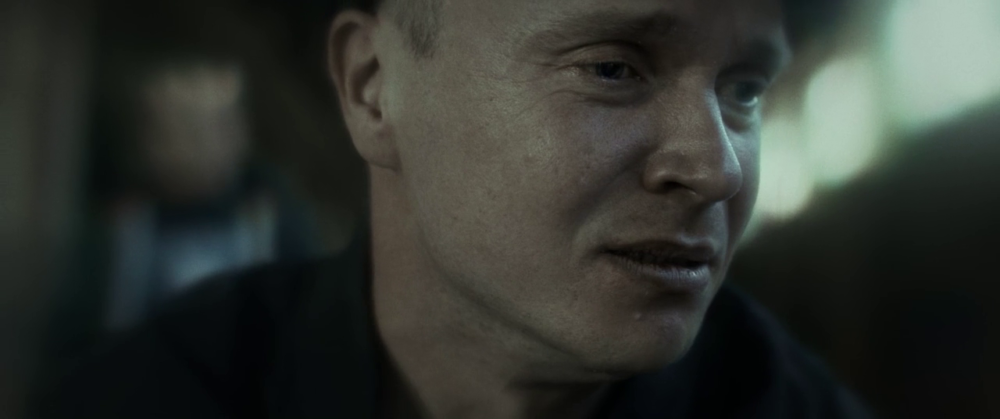When someone with limitations and impediments makes a decision, do we understand how such small action for us might mean the very representation of freedom to that person? In Finnish director Teemu Nikki’s film “The Blind Man Who Did Not Want to See Titanic,” we get the answer. Casting Petri Poikolainen in the lead role as a blind man paralyzed from the waist down; Nikki presents us with a film that intimately examines one’s desire for connection—disabilities be damned.
‘The Blind Man’ follows Jaakko (Poikolainen), a cinephile with a dry sense of humor who loves referring to people and events around him by characters from different films. For instance, his caregiver he calls Annie Wilkes; and that the reason he fell on the floor was that Rocky knocked him down.
Every day, he gets to talk to his girlfriend Sirpa (Marjaana Maijala) on the phone. Theirs is a long-distance relationship exacerbated by their afflictions: while Jaakko suffers from blindness, Sirpa (whom he envisions as an Ellen Ripley lookalike) fears that her diagnosis might be vasculitis. The everyday conversations range from mundane tasks to medical checkups, punctuated by playful yet acerbic humor and film references.
Despite the large collection of films at home, there remains one film Jaakko never watched: James Cameron’s “Titanic.” The problem, though, is that the James Cameron film is Sirpa’s favorite.
“I love that movie.”
“Nobody’s perfect.”

“Will we manage to see each other, before one of us dies?”
‘The Blind Man’ wastes no time presenting the conflict to the (already-complicated) relationship, when Sirpa informs Jaakko that her diagnosis might be fatal. The latter, having found the courage to pursue something—someone—that keeps him alive, decides to go visit her where she lives.
But as Jaakko clearly missed the memo, his blindness and naivete toward trusting the help of random strangers might be his undoing. Visiting Sirpa in a different city requires the help of at least five individuals. And given his condition, Jaakko’s idealism is about to get a harsh reality check.
Add to this Nikki’s approach of shooting ‘The Blind Man’ with a shallow focus, and audiences have a hazy, unsettling viewing experience. In a way, viewers themselves share the experience of visual impairment.
When a Heart That’s Willing Bucks the Challenges, Blindness Be Damned
It’s refreshing to see major characters in a film suffering from a swathe of disabilities, yet who don’t allow those afflictions to define who they are. With ‘The Blind Man’, the pair engage in self-deprecating and dark humor that only shows their true mettle. Jaakko’s sense of humor amplifies the character’s likeability tenfold, making the audience root for him to make it out of his ordeal alive.
This brings us to the central character of the film, and the person behind it.
In a statement, Nikki asked Poikolainen, with whom he’s friends in real life, if the latter would like to act. Given Poikolainen himself is blind and suffers from aggressive multiple sclerosis, the director’s decision to make a film centering on his friend’s condition meant handling everything with sensitivity and such honesty missing in recent films that try to tackle illnesses ranging from benign to inoperable.
‘The Blind Man Who Did Not Want to See Titanic’: A Film About Loneliness
‘The Blind Man’ examines the deep loneliness these characters feel, with Jaakko’s insistence not to discard his movie collection even when his eyesight gradually waned driving home the point. For what it’s worth, he hopes that people who visit him would look at his collection and see what kind of person he is based on the films he has.
One of the quieter moments in the film featured a virtual slow dance between the lovers, knowing that they’re basically living on borrowed time. Poikolainen’s performance through clenched teeth moved me in ways that only a handful of films did in recent years. And even when the film’s third act deviates tonally by employing suspense and thriller as Jaakko’s life rests in the hands of good-for-nothing men, the film’s merits by that point have been so pronounced that even a few drags can be excused.
There are a few films about disabilities that I enjoyed because of their honesty and conscious decision not to resort to manipulating the audience to shed tears. At the top of my head, 2007’s ‘The Diving Bell and the Butterfly’ starring Mathieu Amalric and 2012’s ‘The Sessions’ with John Hawkes at the helm come to mind.
‘The Blind Man Who Did Not Want to See Titanic’, frankly, might just be among those films.